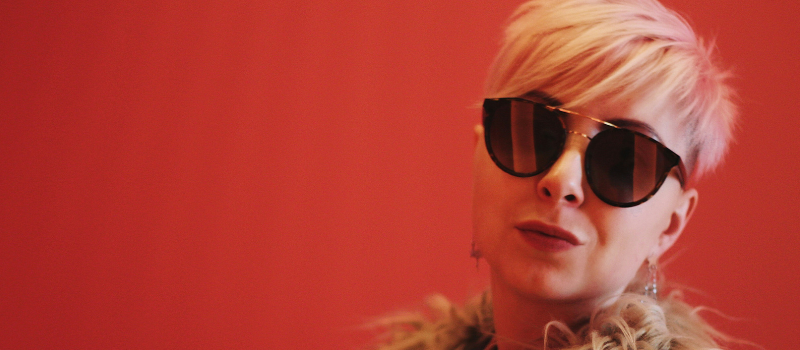A reality TV actor tells you vaccines are dangerous. A tech CEO claims he's revolutionized education. A social media influencer swears by a miracle diet that will change your life. Your brain immediately thinks "they must know what they're talking about" — even though their actual expertise is literally just being famous.
This is authority bias: where your brain mistakes fame for competence and status for intelligence.
This is the opposite of respecting genuine experts who've spent decades mastering their fields. They have earned a degree of authority, even if they’re not perfect.
Authority bias is about your brain automatically believing people just because they're rich, famous, or have fancy titles (even when they're talking complete nonsense outside their area of expertise).
Your brain evolved to follow leaders. Unfortunately, that same wiring now makes you think anyone with a blue checkmark is qualified to give medical advice, investment tips, or life guidance.
Authority bias turns celebrities into instant experts on everything from quantum physics to parenting, and your brain just nods along like a starstruck teenager. Even when you know you shouldn’t trust them, you still do…just because.
Let’s dig into that authority bias a bit more and where it comes from.
What Is Authority Bias?

Authority bias is your brain's tendency to believe information or follow advice simply because it comes from someone in a position of power, status, or perceived expertise (regardless of whether they actually know what they're talking about).
Your brain has a built-in shortcut that says "important person = trustworthy information." It doesn't matter if that important person is a movie star giving medical advice, a billionaire explaining climate science, or an influencer selling financial guidance.
If they have status, your brain assumes they have knowledge.
This isn't about respecting genuine expertise. A heart surgeon's opinion on heart surgery matters because they've spent decades learning about hearts. Authority bias is when that same surgeon's opinion on cryptocurrency carries extra weight just because they're successful in a completely unrelated field.
Authority bias turns popularity into expertise and success into universal wisdom. It's why people hang on every word from tech billionaires about topics they've never studied, and why celebrity endorsements work even when the celebrity knows absolutely nothing about the product.
Your brain is simply trained to think that proximity to power equals proximity to truth.
Why Your Brain Respects Authority (Even Fake Authority)

Your brain's authority worship made perfect sense when humans lived in small tribes where the leader actually knew more about survival than everyone else. Following the chief's guidance about where to hunt or when to migrate was literally life or death…and they have proved their expertise since, you know, they weren’t dead yet.
Authority bias exists because hierarchies worked. The person at the top usually got there by being smarter, stronger, or more experienced. Questioning their decisions was risky, and following them was usually the safest bet. Your brain developed a simple rule: high status = good information.
Fast-forward to modern times, and your brain is still running that same game plan in a completely different world. Now "authority" comes from being famous on TikTok, having millions of dollars, or playing a doctor on TV. But your brain can't tell the difference between a tribal leader who knows which berries are poisonous and a celebrity who knows which skincare products have the best marketing budget.
The wiring is the same, but the world has changed completely.
Classic Examples of Authority Bias in Action
Your brain tends to elevate opinions based on who's saying them, not what's actually being said. Here are examples of authority bias showing up in your day-to-day life:
- Actors promoting anti-vaccine theories despite having zero medical training
- Musicians endorsing miracle cures, supplements, or alternative treatments that actual doctors warn against
- Reality TV stars becoming spokespeople for cosmetic procedures they're paid to promote
- Tech CEOs giving advice on education, despite never being teachers or studying pedagogy
- Real estate moguls explaining foreign policy like they're seasoned diplomats
- Successful entrepreneurs claiming their business tactics apply to parenting, relationships, or personal happiness
- Social media personalities with millions of followers suddenly becoming "experts" on finance, wellness, or life coaching
- YouTubers selling courses on topics they learned last month
- Instagram influencers promoting investment strategies while living off sponsorship deals
- Doctors endorsing weight-loss products that have nothing to do with their medical specialty
- PhDs in literature being treated as authorities on climate science
- Retired professors lending credibility to products or ideas completely outside their field
- News anchors' personal opinions being treated as expert analysis
- Politicians speaking authoritatively about complex scientific or economic issues they don't understand
- Pundits becoming instant experts on whatever crisis is trending this week
It’s all around us, every day, on every platform, at any time.
Why Authority Bias Exists (And Why It's Usually Wrong)

Authority bias works because your brain is running multiple cognitive shortcuts simultaneously, creating a perfect storm of blind trust that's almost impossible to resist.
Your brain uses the "halo effect" to assume that success in one area means competence in all areas. If someone is rich, famous, or accomplished, your mind automatically extends that credibility to everything they say.
The availability heuristic amplifies this effect. Authority figures get more media coverage, so their opinions feel more important and trustworthy than equally valid but less visible perspectives. You hear the celebrity's take on climate change fifty times but never hear from actual climate scientists because they're not selling movie tickets.
Social proof piles on top of everything else. When you see millions of people following someone's advice, your brain assumes it must be correct. The combination of authority + popularity + visibility creates an almost irresistible psychological cocktail that makes questioning seem unreasonable.
The shortcuts are so automatic that you don't even realize you're using them.
How to Know When Authority Bias Is Influencing Your Decisions

Authority bias is sneaky because it feels like logical reasoning when it's actually just mental laziness. Your brain presents authority-based beliefs with the same confidence as fact-based conclusions, and that makes it hard to tell when you're being influenced by status instead of substance:
- You can't explain why you believe something: If your main reason is "because [famous person] said so" instead of actual evidence or logic, authority bias is driving the decision.
- You ignore contradicting experts: When you dismiss qualified professionals because they're less famous than the authority figure you prefer, you're choosing popularity over expertise.
- You extend trust beyond their field: If you're taking medical advice from business leaders or financial guidance from actors, you're letting their success in one area override their ignorance in another.
- You feel defensive when they're criticized: Getting emotionally protective of authority figures you don't personally know suggests you've confused their status with your identity.
- You quote them without fact-checking: When you share their opinions as truth without verifying the information independently, you're acting as their unpaid marketing team.
- You assume they're smarter than everyone else: If you think being rich/famous automatically makes someone more intelligent than actual experts in specific fields, authority bias has hijacked your judgment.
- You change your mind based on who said it: When the same information seems more convincing coming from a celebrity than from a regular person, you're responding to status rather than substance.
Ultimately, it comes down to whether you would believe this information if it came from your neighbor instead of someone famous.
Question Authority (Especially Famous Authority)
You don't need to become a paranoid conspiracy theorist to think critically about authority. The goal isn't to reject all expertise — it's to evaluate whether someone's authority actually matches their area of knowledge.
Ask simple questions:
- What are their actual qualifications?
- Are they speaking within their expertise?
- What do other experts in this specific field say?
- Would you believe this information if it came from someone without fame or status?
Real experts welcome questions and provide evidence. Fake experts get defensive and rely on their reputation instead of facts.
Your brain will keep defaulting to authority worship because that's how it's wired. But now you know when to override that programming and demand actual evidence instead of borrowed credibility.
Stop letting fame substitute for facts. Your decisions deserve better than celebrity endorsements disguised as expertise.
Subscribe to Hold That Thought for more ways to think independently in a world full of influencers.
.png)

.png)
